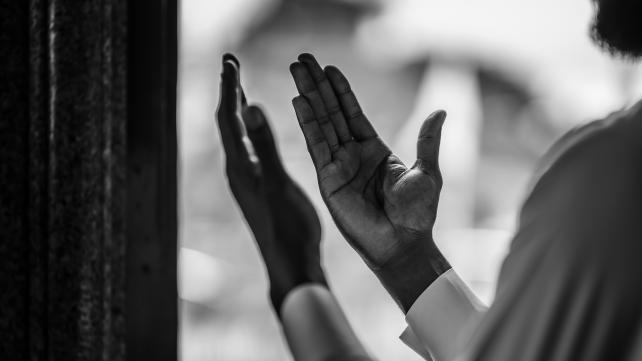
In 1999, Muslim Youth of North America (MYNA) produced a music tape of Islamic songs and rap for Muslim Youth. The internationally renowned Muslim rap group Native Deen was one of the artists on this particular tape. Although all of the songs were impactful, one of the songs on that tape entitled “The Next Level” begins with a message from one of the rappers inviting those listening to understand and embrace the concept of taking ourselves to the next level in our practice of Islam.
The singer/rapper reminds the listener that all those who consider themselves “good Muslims” should strive to become “better Muslims”; and all those who see themselves as “so so Muslims”, should strive to become “good Muslims”; and all of those lost and not practicing this Deen, should return to the fold.
The intention of taking our religious practice and Ibadah (worship) to the level of excellence is ever prominent in our minds when we approach or are in the last ten days of the blessed month of Ramadan. Increasing our worship has special meaning during this time if we just take a moment and reflect.
The problem that we often have is that we rush through our lives busy with family, school, work, social activities and the like – even during Ramadan. In fact, many of us struggle to complete those activities because there is simply limited time during the day and night in Ramadan before another obligation takes hold of us.
Before Ramadan begins, we may make the intention to pray the taraweeh in the masjid, read at least one juz of the Quran a day, perform charitable works to the poor and hold our temper when dealing with others. Our intentions may have been right, but sometimes circumstances can derail our plans.
Ramadan is meant to set us right for the year. We are reminded that Ramadan is a month of reflection. We can spend hours, days or even years just reflecting on the miracle that occurred during the month of Ramadan – the beginning of the revelation of the Quran. That was a momentous event!
The revelation of the Quran has changed the course of history for mankind. It has brought over one billion people literally to their most humble selves in Sujood (prostration), struggling to submit to the One True God. The revelation of the Quran changed our lives personally because we could be something else – or even a disbeliever. But Allah has blessed us and given favor to bring us to this way of life.
The Holy Quran is Al-Qur'aan – The Recitation that we should speak; Al-Kitaab -The Book we should read; Al-Furqaan- The Criterion for which we are judged; Ath-Thikr,-The Reminder of what we need to know to please Allah, and At-Tanzeel -The Revelation revealed to Prophet Muhammad, God’s peace and blessings be upon him. Reflect upon that!
And there is no better time to contemplate on what Allah has given us through the Quran than during the blessed month of Ramadan. When we take the time, we can examine and seek to understand the message, the beauty, and the magnificence of the words within the Holy Quran.
But in order to do that we must be deliberate in our intention and deed. We need to make the intention and efforts to set aside time. Taking a break or vacation from our jobs, especially during the last 10 days of Ramadan, is beneficial to our spirit and gives us the opportunity to increase our Ibadah.
The actions of the Prophet were reported by his wife Aisha, may Allah be pleased with her, when she said, “The Prophet (Allah bless him and give him peace) would always perform Iitikaf in the last ten days of Ramadan until Allah Most High took his soul (Allah bless him and give him peace)” (Bukhari).
So we can rearrange our own lives in imitation of the Prophet by making Itikaf, or secluding oneself in the mosque during the last 10 days of Ramadan to focus exclusively on worship.
Itikaf, like all things in Islam, is about our intentions. We can make the intention to do Itikaf for a day, a few days or 10 days. In addition, itikaf need not just be during the month of Ramadan.
Itikaf is a vow that we take with seriousness and sincerity to devote and isolate ourselves for the sole purpose of worshiping Allah. In Suratul Mu’minun (Quran 23:8) Allah praises the believers who are true to their obligations when we see the list of definitions of what makes one a believer, which includes: “those who faithfully observe their trusts and their covenants”.
Making Itikaf is a commitment, promise, and pledge to seek the favor of Allah. The sincerity of this trust is such that scholars agree that once we make the intention to do Itikaf and begin, then it is a trust that we must complete. If you made an intention to do Itikaf for five days and it was interrupted and you were only able to complete three days, then you would make up the days missed, in the same manner you would if you missed days of fasting.
While making Itikaf, isolating ourselves from the outside world and influences, we then have time to read and recite the Quran and catch up on any Juz we may have not yet had time to fully read. We can recite the Darood, the Dua we send of blessing of peace on the Prophet when we are in the Tashahhud or sitting position of each Salah. We can read books on Islam and increase our knowledge. We can do Dhikr, remembrance of Allah, and we can immerse ourselves into sincere Tawba (repentance).
Itikaf is a manner in which we can take our Islamic practice and submission to Allah, The Most High, to the next level.



Add new comment